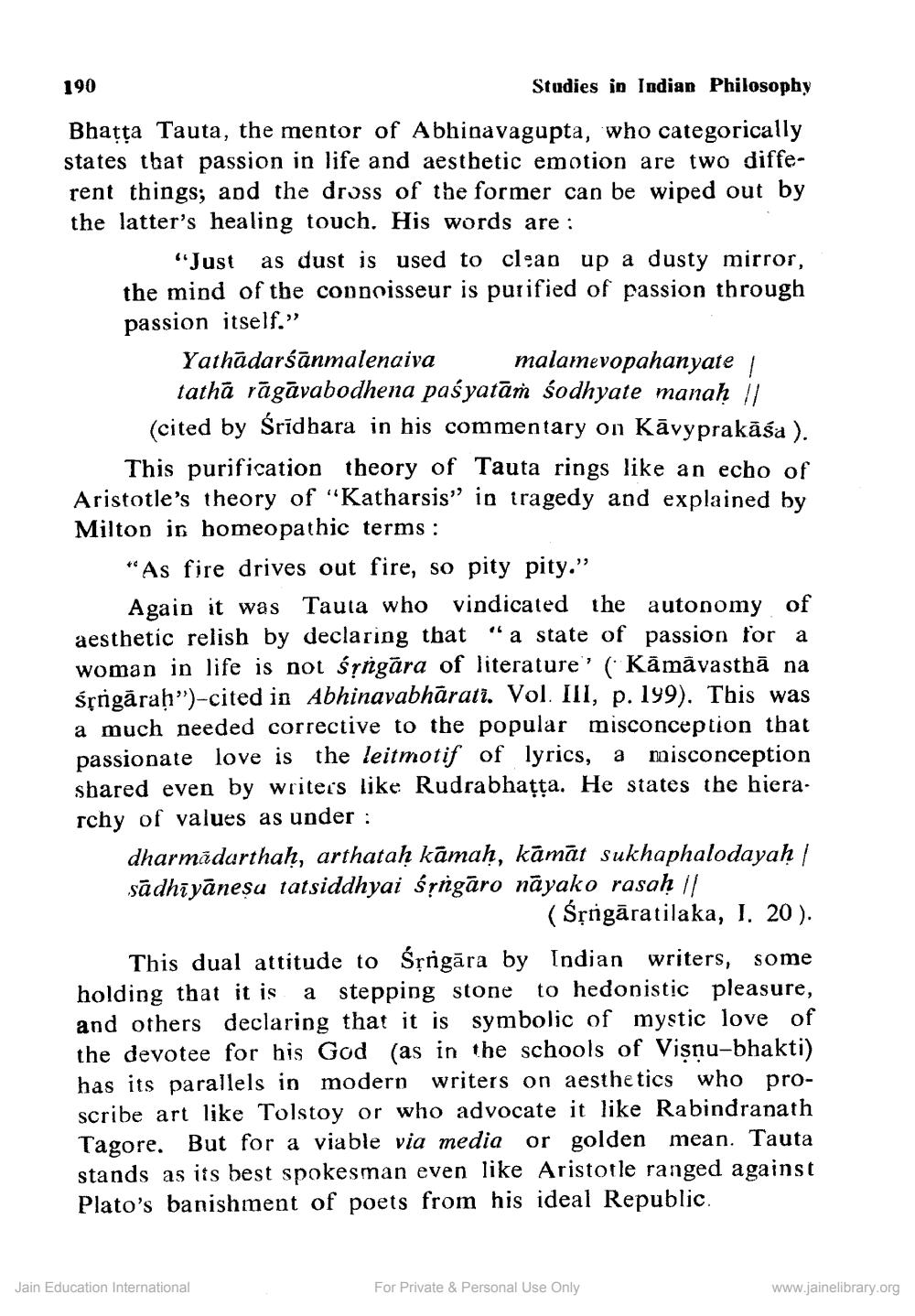________________
Studies in Indian Philosophy Bhaṭṭa Tauta, the mentor of Abhinavagupta, who categorically states that passion in life and aesthetic emotion are two different things; and the dross of the former can be wiped out by the latter's healing touch. His words are:
190
"Just as dust is used to clean up a dusty mirror, the mind of the connoisseur is purified of passion through passion itself."
Yathādarśanmalenaiva
malamevopahanyate | tatha rāgāvabodhena paśyatām śodhyate manaḥ || (cited by Śrīdhara in his commentary on Kāvyprakāśa ).
This purification theory of Tauta rings like an echo of Aristotle's theory of "Katharsis" in tragedy and explained by Milton in homeopathic terms:
"As fire drives out fire, so pity pity."
Again it was Tauta who vindicated the autonomy of aesthetic relish by declaring that "a state of passion for a woman in life is not śṛngara of literature' (Kāmavasthā na śṛngāraḥ")-cited in Abhinavabharati. Vol. III, p. 199). This was a much needed corrective to the popular misconception that passionate love is the leitmotif of lyrics, a misconception shared even by writers like Rudrabhatta. He states the hierarchy of values as under:
dharmadarthaḥ, arthataḥ kāmaḥ, kāmāt sukhaphalodayah | sādhiyāneṣa tatsiddhyai śṛngaro nayako rasaḥ ||
(Śṛngāratilaka, I. 20).
This dual attitude to Śrrigara by Indian writers, some holding that it is a stepping stone to hedonistic pleasure, and others declaring that it is symbolic of mystic love of the devotee for his God (as in the schools of Visnu-bhakti) has its parallels in modern writers on aesthetics who proscribe art like Tolstoy or who advocate it like Rabindranath Tagore. But for a viable via media or golden mean. Tauta stands as its best spokesman even like Aristotle ranged against Plato's banishment of poets from his ideal Republic.
Jain Education International
For Private & Personal Use Only
www.jainelibrary.org




